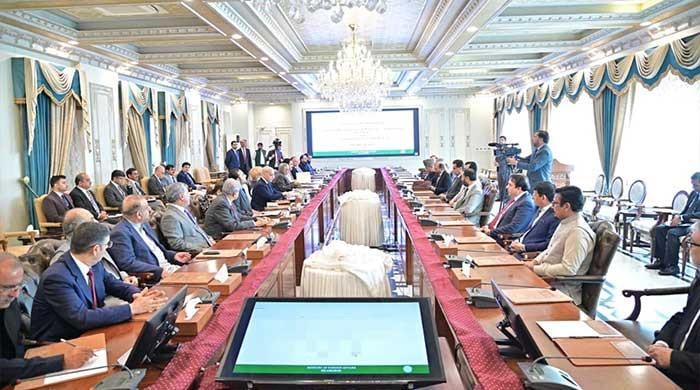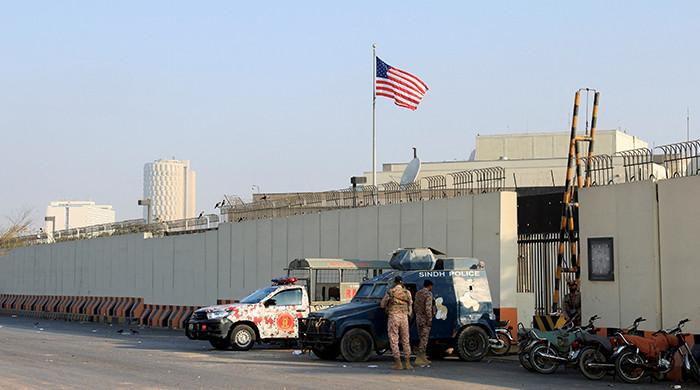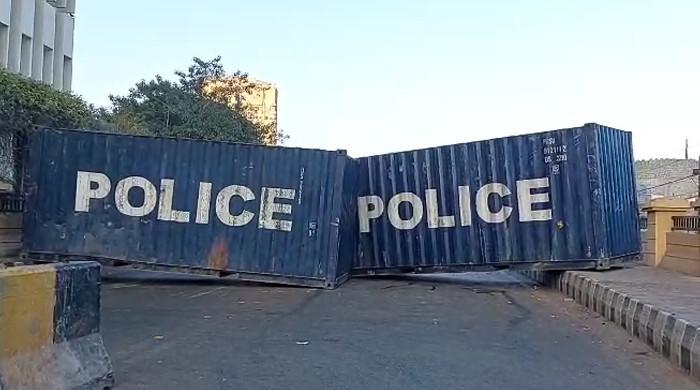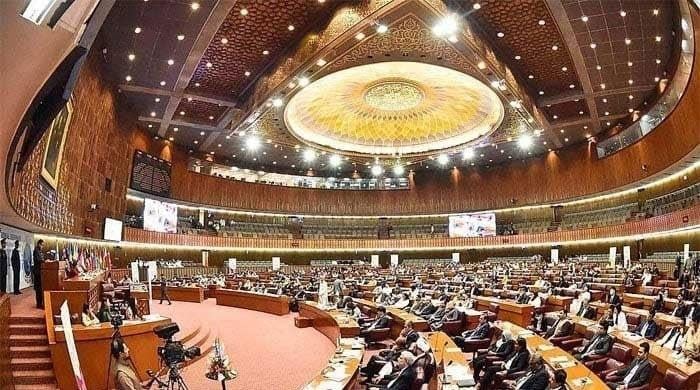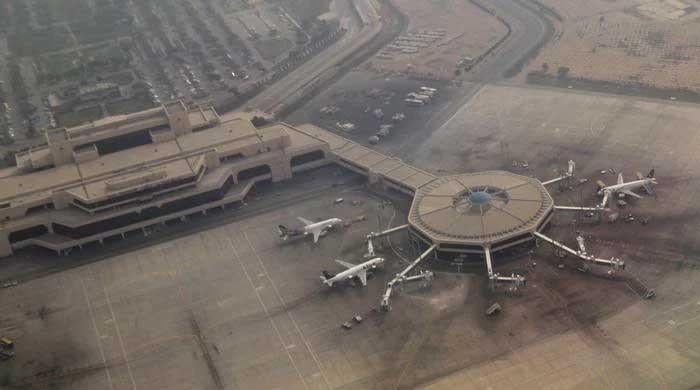Peshawar: The oldest living city of South Asia
Peshawar carries unique distinction of being custodian of eight to ten ancient civilisations, including Gandhara
June 21, 2022
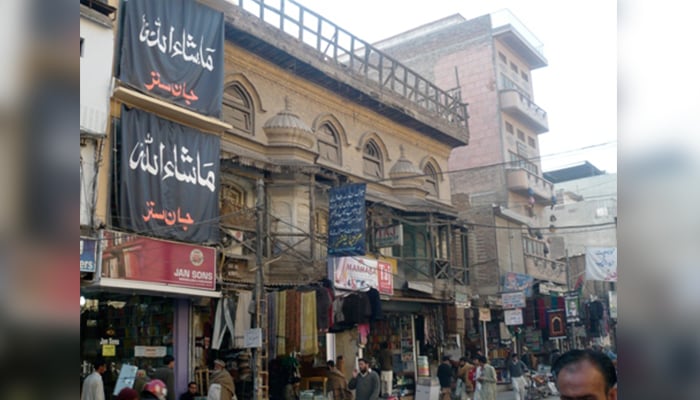
Known as the oldest living city in South Asia with a documented history of 2,500 years old, Peshawar carries a unique distinction of being a custodian of eight to ten ancient civilisations including Gandhara, making it a centre of attraction for foreign and domestic tourists due to its unique archaeological sites and glorious history.
Famous for ancient Balahisar Fort and Qissa Khwani Bazaar, Peshawar was officially declared by the Archaeology Department as the "Oldest Living City" in South Asia with its history going back to 539BC.
Director Archaeology and Museums, Dr Abdul Samad Khan told APP that recent Gor Kathri’s scientific excavation has disclosed that Peshawar was the oldest living city in South Asia inhabited by humans with diversified culture, language and architecture.
He said Gor Khatri's excavation, architectural designs, food and languages have revealed that eight to ten ancient civilisations existed in Peshawar.
The excavation at Gor Khatri, which continued for several years and was published in the British Journal of Current World Archaeology titled "The deepest and biggest excavation in the world" has revealed 20 layers that provide a complete profile of the Peshawar city ranging from British down to pre-Indo-Greek era.
The excavation discovered that Peshawar was a province of the Persian Achaemenian Empire in four to six centuries BC and later came under the influence of Mauryans, Greeks, Scythians, Kushans, Sasanians, White Huns, Ghaznavids, Slave Dynasty, Ghoris, Suri Afghans, Mughals, Durrani, Sikhs and the British before the creation of Pakistan.
Conquered by Greeks and ruled by Buddhists, Peshawar had witnessed rebuilding by Brahmins, invaded by Ghaznavids, captured by Mughals, overrun by Sikhs and annexed by the British in succession.
Despite witnessing the onslaught of worriers, kings and invaders that marched from Afghanistan, and Central Asian Republics to the Subcontinent through the historic Khyber Pass, Dr Samad said that Peshawar’s remained intact and a centre of attractions for tourists and traders since its establishment.
“Qissa Khwani Bazaar remained the centre of attractions for international traders and merchants, who often stayed here to enjoy its famous chapli kabab and other delicious cuisines with traditional Qehwa and exchanged stories about each others’ culture, food, art and music before departing to Central Asian Republics (CARs) and Subcontinent for trade.
”During a stay at Qissa Khwani, he said the international traders had got a unique opportunity to explore almost all the historical sites and buildings of Peshawar like Sethi House, Balahisar Fort, Ghanta Ghar, Chowk-e-Yadgar, Mohabat Khan Mosque and Peshawar Museum.
Terming Peshawar Museum is one the world’s largest museums of Gandhara art, Dr Abdul Samad said that the conservation of its British era’s building was almost completed with an estimated cost of Rs20 million which would soon be opened to the general public.
“The museum currently houses 4,0,000 rare antiquities and artefacts besides the complete life story of Lord Buddha, attracting Buddhists and monks from across the world."
He added: "The conservation work of the historical building of Mohabat Khan Mosque has been completed and efforts are underway to renovate it in original shape, adding that 40% work on its ceiling and minarets besides adjoining portions were also completed."
The archaeology guru said that Rs87 million were approved for the conservation of Mohabat Khan Mosque and the KP Chief Minister had already passed directives to allocate more funds for the completion of the mega project.
Dr Abdul Samad said that 42 encroached shops and adjacent plaza have affected the building of the historical mosque and negotiations were underway to convince the traders and shopkeepers to remove these shops.
Bakhat Muhammad, Assistant Director of Research, Directorate of Archaeology and Museums said that around 3,000 historical sites have existed in Peshawar, Charssadda, Swabi, Nowshera and Mardan districts including 1,840 ancient buildings in Peshawar.
Besides Gor Khatri, he said Dalazak Tomb, Kotla Mohsin Khan, Sakhi Mahuddin tombs, and Chacha Younas monument were declared protected sites while Sakhi Shah Mardan Villa, Bejo tomb, Qissa Khwani, Lady Reading Hospital and others as non-protected.
He said British-era Sethi House Peshawar, a historical building of the British era carrying a unique architectural value and eye-catching wood craftsmanship, was purchased by the KP Government and was converted into a full-fledged museum.
Inspired by Muslims and the vernacular architecture of Bokhara Uzbekistan, he said the Sethi family associated with international trade had constructed the masterpiece in 1886 after migrating from Punjab to Peshawar in the early 19th century at Mohallah Sethian where about seven Havelis were built in almost the same style, signifying their aestheticism.
“I have heard a lot about the wood craftsmanship of Sethi House and found it correct today after visiting the architectural wood wonder of Peshawar,” said Engr Khushal Khan, a resident of Dir Lower while talking to the news agency.
“The impressive building with eye-catching wood designs, red and green window glasses and ventilators structure of Sethi House has impressed me the most."
Dr Abdul Samad said the focus was being made on the completion of 12 ongoing projects including conservation of Mohabat Khan Mosque, development of key archaeological sites of Swat, Takht Bhai and preservation of Kalash culture in Chitral, curbing illegal excavations and smuggling of antiquities and preservation of colonial-era archaeological sites.
He said that 800 new archaeological sites were discovered in Khyber Pakhtunkhwa.
Regarding new projects in budget 2022-23, he said that Rs100 million were allocated for a new project ‘documentation of archaeological sites in merged tribal districts’ and practical work on it would start during the next fiscal year.






